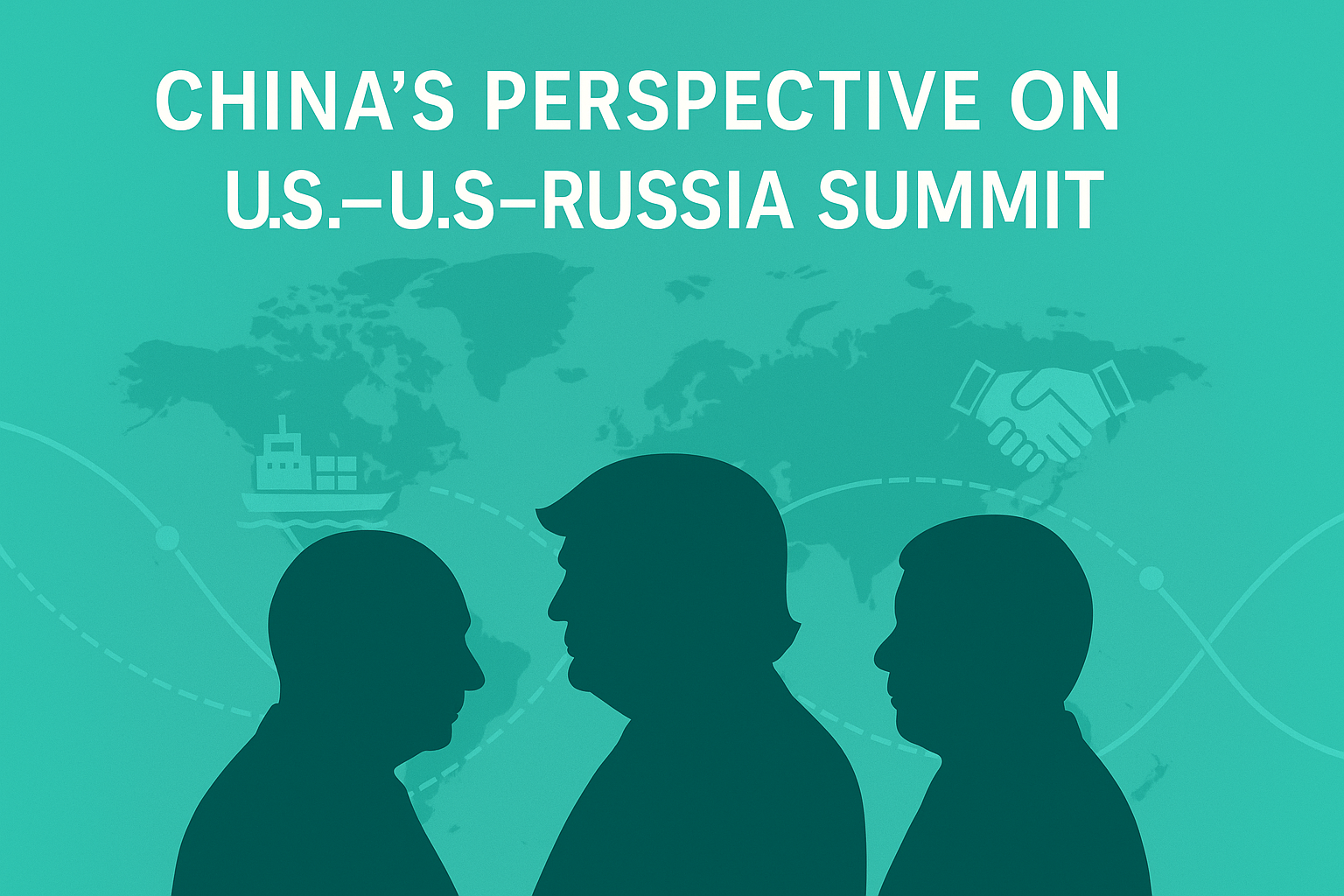Introduction
On August 15, 2025, U.S. President Donald Trump and Russian President Vladimir Putin met in Alaska for a highly anticipated summit. While global attention focused on U.S.–Russia relations, Beijing closely monitored the developments. Against the backdrop of increasingly strained U.S.–China ties, the outcome of this meeting carries profound implications for China’s strategic posture.
1. Strategic Balance: A New Triangle of Power
From Beijing’s perspective, a closer U.S.–Russia dialogue risks reshaping the global power balance. China has positioned itself as the “third pole” in world politics, but any rapprochement between Washington and Moscow could dilute Beijing’s influence. Particularly if discussions lead to a framework for resolving the Ukraine conflict, China’s leverage in Eurasian affairs may be reduced, leaving Russia with broader diplomatic options.
2. Economic Interests: Russia’s Potential Diversification
Russia has become heavily dependent on China for energy exports and financial support amid Western sanctions. However, if the U.S. hints at sanction relief or selective economic engagement, Moscow may diversify its partnerships and reduce reliance on Beijing. Such a move would undermine China’s current economic advantage in its relationship with Russia.
3. Security Implications: U.S. Focus on the Indo-Pacific
China’s greatest concern is whether the summit accelerates the end of the Ukraine war. If Europe stabilizes, Washington could redirect more resources toward the Indo-Pacific, strengthening its containment strategy against China. For Beijing, the optimal outcome is a partial U.S.–Russia accommodation that keeps Washington’s attention divided between Europe and Asia.
4. Diplomatic Positioning: The Moscow Signal
Putin’s suggestion that the next summit may take place in Moscow carries mixed signals for China.
- Positive: If Russia remains the central stage of great-power dialogue, China can continue leveraging its role as Moscow’s closest partner.
- Negative: If Russia leans toward Washington, Beijing risks being sidelined and facing a united Western–Russian front.
5. China’s Likely Response
- Deepening ties with Russia: Strengthening cooperation in energy, defense, and finance to limit Moscow’s incentives to pivot toward the U.S.
- Expanding Global South influence: Building stronger alliances in Africa, the Middle East, and Latin America to reinforce its “third pole” status.
- Maintaining dialogue with the U.S.: Despite tensions over trade, technology, and Taiwan, China may seek controlled engagement with Washington to prevent strategic isolation.
Conclusion
For China, the Alaska summit was not merely a bilateral U.S.–Russia event, but a potential reshuffling of global power. With U.S.–China relations at their lowest point in decades, Beijing perceives the Trump–Putin dialogue as a warning signal: the possibility of Washington regaining flexibility in Europe while tightening its grip in Asia. In this shifting geopolitical environment, China will likely pursue a dual-track strategy—reinforcing its bond with Russia while cautiously managing channels with the U.S.—to safeguard its global position.


